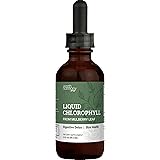The journey through alcohol detoxification is undeniably one of the most challenging experiences an individual can face. As the raw and honest glimpse in the video above shows, what appears on the surface to be a simple act of “quitting” is, in fact, a complex and often dangerous medical process. Witnessing the struggles of someone like Heather on Day 5 of detoxing from alcohol provides a stark reminder of the profound impact alcohol has on the body and mind, particularly when severe withdrawal symptoms, including Delirium Tremens (DTs), begin to manifest.
For those considering or undergoing alcohol detox, understanding what to expect and, crucially, the importance of professional medical supervision, is paramount. This isn’t merely about discomfort; it’s about navigating a potentially life-threatening physiological storm.
Understanding Alcohol Withdrawal: More Than Just a Hangover
Alcohol is a central nervous system depressant. When consumed regularly and heavily, the body adjusts to its presence, essentially working harder to maintain a state of “normalcy.” When alcohol consumption suddenly stops or significantly decreases, the nervous system, which has been overcompensating, goes into overdrive. This is the essence of alcohol withdrawal.
The symptoms of alcohol withdrawal can vary widely, from mild to severe. Initially, someone might experience anxiety, tremors (the “shakes”), nausea, vomiting, headaches, and insomnia. However, the severity can escalate rapidly. Imagine if your body, used to constant suppression, suddenly hit the accelerator without warning. This intense physiological rebound is what makes detoxing from alcohol so perilous without professional help.
The Spectrum of Symptoms
- Mild to Moderate: Anxiety, insomnia, nightmares, headaches, sweating, loss of appetite, rapid heart rate, mild tremors.
- Severe: Hallucinations (auditory, visual, or tactile), seizures, extreme disorientation, rapid heart rate, high blood pressure, and crucially, Delirium Tremens (DTs).
Unlike a typical hangover, alcohol withdrawal symptoms progressively worsen over time, often peaking in severity several days into the detox process.
Day 5: A Critical Juncture in Detoxification
As seen with Heather in the video, Day 5 of detoxing from alcohol can be an exceptionally difficult period. While initial withdrawal symptoms might appear within 6-12 hours of the last drink, the most severe and dangerous symptoms, including seizures and Delirium Tremens, often emerge between 48 to 72 hours, and can persist or even escalate into Day 5 or Day 6. This is precisely why Heather’s visible struggle, the disconnect between “mind is here but my body’s saying no,” is so concerning and illustrative.
On these critical days, the body is desperately trying to re-regulate itself after prolonged alcohol abuse. The brain’s neurotransmitters, particularly GABA (which alcohol enhances) and glutamate (which alcohol suppresses), are wildly out of balance. This neurological chaos manifests as the intense physical and mental distress witnessed. The simple act of standing or walking becomes an immense challenge, not due to lack of will, but because the nervous system is compromised, causing profound unsteadiness and physical weakness.
Delirium Tremens (DTs): The Severe Reality
Perhaps the most feared and life-threatening complication of alcohol withdrawal is Delirium Tremens, commonly referred to as DTs. This severe form of withdrawal impacts roughly 5% of individuals undergoing detox, particularly those with a history of chronic, heavy alcohol use or prior withdrawal episodes. Despite its relatively low incidence, the mortality rate for untreated DTs can be as high as 15-20%, making it a critical medical emergency.
Key Symptoms of DTs:
- Severe Agitation and Confusion: Profound disorientation, inability to recognize people or surroundings.
- Hallucinations: Often visual, but can be auditory or tactile (e.g., feeling bugs crawling on the skin). These can be terrifyingly vivid.
- Tremors: Uncontrollable shaking, far more severe than the “shakes” of milder withdrawal.
- Seizures: Generalized tonic-clonic seizures, which are a medical emergency.
- Autonomic Instability: Extremely rapid heart rate (tachycardia), high blood pressure (hypertension), fever, and profuse sweating.
Imagine if your deepest fears and most disorienting nightmares were playing out in broad daylight, while your body simultaneously felt like it was betraying you with uncontrollable shaking and sweating. This harrowing experience highlights why Delirium Tremens is not just a symptom but a severe medical condition requiring immediate, specialized intervention.
The Unseen Battle: Beyond the Physical Symptoms
While the physical manifestations of alcohol withdrawal and DTs are alarming, the psychological and emotional toll is equally devastating. Fear, anxiety, paranoia, and intense cravings are constant companions. The individual may experience profound guilt, shame, and despair, often feeling isolated even when surrounded by support.
The mental clarity that someone like Heather might briefly experience – “My mind is here” – can be fleeting, replaced by confusion, agitation, or terrifying hallucinations. This constant flux between moments of lucidity and periods of profound distress is incredibly draining and adds another layer of complexity to an already arduous process. The battle isn’t just to stabilize the body, but to support a mind under siege.
Why Medical Supervision is Non-Negotiable
Given the dangerous and unpredictable nature of alcohol withdrawal, attempting to detox from alcohol at home without medical supervision is highly discouraged and can be fatal. A medically supervised detox facility offers a safe and controlled environment where healthcare professionals can:
- Monitor Vital Signs: Blood pressure, heart rate, temperature, and breathing are continuously monitored to detect complications early.
- Administer Medications: Doctors can prescribe medications, most commonly benzodiazepines (e.g., Librium, Valium, Ativan), to reduce withdrawal symptoms, prevent seizures, and calm the central nervous system. These medications are tapered down over time.
- Provide Supportive Care: Hydration, nutrition, and comfort measures are essential components of care, addressing the severe physical stress on the body.
- Address Complications: Medical staff are equipped to manage seizures, hallucinations, and other severe symptoms immediately.
- Offer Emotional Support: The presence of trained professionals can provide reassurance and support during an emotionally tumultuous time.
When considering detoxing from alcohol, it is crucial to recognize that the safest and most effective path forward involves professional medical care. This is not a sign of weakness, but a courageous and responsible step towards recovery.
Supporting Someone Through Detox
For family members and loved ones, witnessing someone struggle through alcohol withdrawal can be incredibly distressing. The most important action you can take is to ensure they receive immediate medical attention. Once in a professional detox setting, your role shifts to providing non-judgmental emotional support, encouraging their recovery journey, and educating yourself on the process. Remember, their behavior during detox is often a manifestation of a serious medical condition, not a personal failing.
Moving Forward: The Path to Long-Term Recovery
It is vital to understand that alcohol detox is merely the first, albeit critical, step on the road to lasting sobriety. While detox addresses the physical dependence, it does not resolve the underlying psychological and emotional factors that contribute to alcohol addiction. Following detox, engaging in ongoing treatment such as therapy, support groups (like AA or SMART Recovery), and aftercare planning is essential. Long-term recovery from alcohol addiction requires continuous effort, self-compassion, and a robust support system, all built upon the foundation of a safe and medically supervised alcohol detox.











